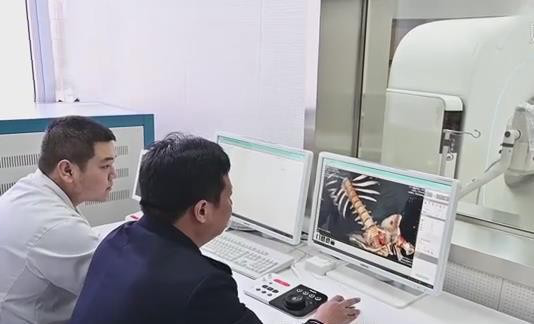In February 23rd - March 1st, 2021, the College of Basic Medical Sciences (CBMS) of Jilin University in collaboration with the Changchun Public Security Bureau completed the first imaging of cadaver blood vessels through internal carotid artery and femoral artery approaches in China. After 3D reconstruction, the imaging data could fully show the vascular lesions in the heart, brain and abdominal cavity. The establishment of this experimental method is not only conducive to the forensic identification of the death causes of patients with cardiovascular and cerebrovascular diseases, but also helpful for the accurate location of the vascular rupture caused by injuries difficult to be found by conventional autopsy, especially for the forensic identification of vascular rupture and bleeding jointly caused by some injuries and vascular diseases.

On December 30th, 2019, in the CBMS of Jilin University, the virtual anatomy laboratory was jointly established by Jilin University, Department of Public Security of Jilin Province, Changchun Public Security Bureau and Neusoft Medical Systems Co., Ltd. The laboratory is equipped with a Neusoft Prime 128-layer spiral CT, a Neusoft 1.5T high-end MR, a Bayer MEDRAD high-pressure syringe (model: Stellant D-CE), and an AVW medical image post-processing station (Version 2.0).

In 2020, the Jilin University Forensic Center started the virtual anatomical identification for cadavers died of traffic & construction accidents and criminal cases. In particular, the laboratory provides an efficient solution for some families which can't accept the traditional invasive autopsy due to certain customs, making outstanding contributions to maintaining social stability and giving full play to the social service functions of Jilin University.


The relevant study was carried out by Chen Zhiming from the CBMS of Jilin University, Wang Lijun and Gao Yanbin from Changchun Public Security Bureau, Zhang Huimao and Cheng Zhihua from the First Hospital of Jilin University, and Wang Wenxin from Neusoft Medical Systems Co., Ltd.
